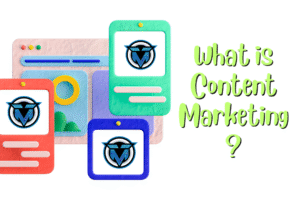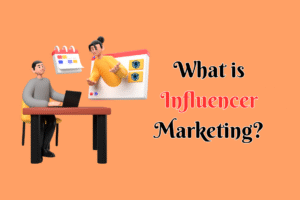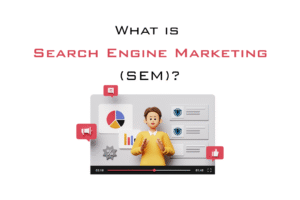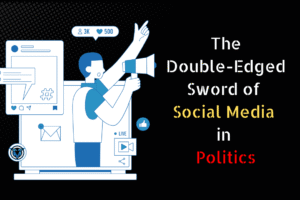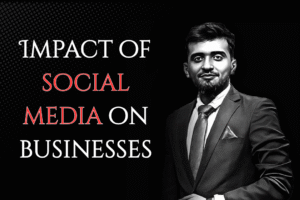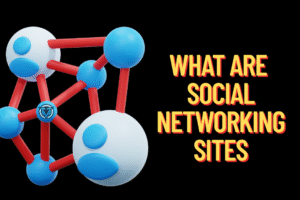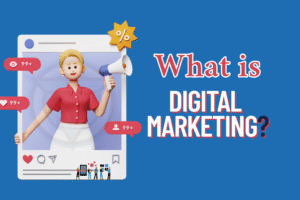In a digital-first world where attention is currency, businesses are shifting from hard-sell tactics to value-driven communication. This is where content marketing stands out. It’s not just a buzzword—it’s one of the most powerful marketing strategies for building trust, authority, and visibility.
Whether you’re a startup, small business, or global brand, content marketing can help you reach, educate, and convert your target audience organically. This comprehensive guide breaks down what content marketing is, how it works, and why it’s a must-have strategy in 2025 and beyond.
📌 What is Content Marketing?
Content marketing is a strategic marketing approach focused on creating and distributing valuable, relevant, and consistent content to attract and retain a clearly defined audience—and ultimately, to drive profitable customer action.
Unlike traditional advertising, content marketing doesn’t directly promote a product or service. Instead, it provides informational, entertaining, or educational content that aligns with the audience’s needs and interests.
🎯 The Core Objective of Content Marketing
The goal is simple: solve your audience’s problems with useful content, and in return, they trust your brand, engage with your business, and eventually convert into loyal customers.
🔍 Key Components of Content Marketing
- Valuable Content – Must educate, inform, or entertain the reader.
- Targeted Audience – Tailored for a specific demographic or buyer persona.
- Strategic Goals – Each piece should have a purpose—whether it’s driving traffic, generating leads, or improving SEO.
- Consistent Distribution – Regular posting builds trust and increases reach.
- Measurable Results – Use analytics to track engagement and conversions.
🧩 Types of Content Used in Content Marketing
| Content Type | Purpose | Channel |
|---|---|---|
| Blog Posts | SEO, thought leadership, traffic | Website |
| Videos | Engagement, education, brand awareness | YouTube, TikTok, social media |
| Infographics | Visual storytelling, quick info delivery | Social media, websites |
| E-books/Whitepapers | Lead generation, in-depth education | Landing pages, email marketing |
| Podcasts | Audio engagement, niche targeting | Spotify, Apple Podcasts |
| Case Studies | Social proof, lead nurturing | Website, email campaigns |
| Email Newsletters | Retention, direct communication | Subscriber lists |
| Social Media Posts | Interaction, brand voice | Facebook, Instagram, LinkedIn |
| Webinars & Live Streams | Authority, real-time interaction | Zoom, YouTube Live, IG Live |
🚀 How Does Content Marketing Work?
Here’s a step-by-step breakdown of how content marketing operates in a typical digital ecosystem:
1. Research & Audience Analysis
The first step is understanding:
- Who is your audience?
- What problems are they facing?
- What platforms do they use?
- What kind of content do they consume?
Use tools like Google Analytics, SEMrush, and Surveys to define your buyer personas.
2. Content Strategy Development
Once your audience is defined, develop a content strategy aligned with:
- Brand goals (awareness, lead generation, conversions)
- Keywords (for SEO)
- Competitor research
- Funnel stages (top, middle, bottom)
A successful strategy also includes a content calendar for consistent publishing.
3. Content Creation
Create high-quality, original content optimized for both humans and search engines. Each piece should:
- Solve a specific problem
- Use SEO best practices (headings, keywords, metadata)
- Include visuals (images, videos, infographics)
- Encourage engagement (comments, shares)
4. Content Distribution
It’s not enough to publish content—you need to promote it effectively. Use:
- Organic social media posts
- Email marketing
- Paid ads (for boosting reach)
- Influencer collaborations
- Content syndication platforms
5. Engagement & Feedback
Encourage audience interaction through:
- Comments
- Polls
- Surveys
- User-generated content
Building two-way communication increases trust and customer retention.
6. Analytics & Optimization
Use tools like:
- Google Analytics (traffic, bounce rate, session time)
- Search Console (indexing, ranking, CTR)
- HubSpot or SEMrush (content scoring, conversion)
Track what’s working and optimize:
- Headlines
- Call-to-actions (CTAs)
- Content length and format
- Keyword targeting
📈 Benefits of Content Marketing
✅ Boosts SEO
Search engines prioritize valuable, keyword-rich content. The more quality content you produce, the better your organic rankings.
✅ Increases Website Traffic
Content gives people a reason to visit your site. Blog posts, videos, and infographics drive repeat visitors.
✅ Builds Brand Authority
Educational content positions your brand as a trusted expert in the industry.
✅ Improves Customer Engagement
Content marketing creates a dialogue between your brand and your customers.
✅ Generates Quality Leads
With content like whitepapers, e-books, and landing pages, you can capture emails and nurture leads through the sales funnel.
✅ Lowers Marketing Costs
Compared to paid advertising, content marketing delivers long-term results at a lower cost.
🛠 Tools to Power Your Content Marketing
- Google Analytics – Monitor traffic and behavior.
- Yoast SEO / RankMath – WordPress plugins for on-page SEO.
- Grammarly / Hemingway – Improve content readability.
- Canva – Design visuals for blogs and social posts.
- Trello / Notion – Manage your content calendar.
- BuzzSumo – Research content trends and ideas.
- Ahrefs / SEMrush – Keyword research and competitor tracking.
🔮 Future of Content Marketing in 2025
- AI-Generated Assistance: More tools like ChatGPT and Jasper.ai to speed up content creation.
- Interactive Content: Quizzes, polls, and calculators drive more engagement.
- Voice Search Optimization: Content will adapt to voice queries as smart speakers grow.
- Video-First Strategy: Short-form video dominates platforms like TikTok, Instagram Reels, and YouTube Shorts.
- Personalization: Dynamic content tailored to user behavior and interests.
❗ Common Content Marketing Mistakes to Avoid
- Creating content without strategy
- Ignoring SEO fundamentals
- Publishing inconsistently
- Being overly promotional
- Failing to track performance
- Not updating old content
🧠 Final Thoughts
Content marketing is not a quick win—but it’s a long-term investment that pays off with consistent traffic, trust, and brand authority. When executed properly, it becomes the engine that drives your entire digital marketing ecosystem.
Whether you’re starting small with blogs or building a full-scale strategy with video, podcasts, and lead magnets—content marketing is the key to connecting with customers in 2025 and beyond.

